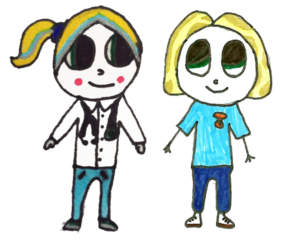 Covid-19 and Kawasaki Disease 19 March 2020
Covid-19 and Kawasaki Disease 19 March 2020
Societi Foundation Scientific Advisory Board
Statement on Covid-19 and Kawasaki Disease
We have received a number of enquiries from supporters recently who are concerned about the spread of Covid-19 and what this might mean for those that have previously been affected by Kawasaki Disease. We therefore asked our Scientific Advisory Board about this and they have issued the following statement:
Published on 19 March 2020 (Updated and reviewed on 22 June 2021)
Children and Young adults – The Scientific Advisory Board notes that a remarkable feature of the Covid-19 reports worldwide, is that children and healthy young adults have generally had mild disease and have recovered well.
Patients with previous Kawasaki Disease – Patients with previous Kawasaki Disease have normal immune responses to all common infections, and so there is no reason to suspect that they are any more susceptible to Covid-19 infection. There is also no reason to suspect they will suffer a more severe Covid-19 infection than other children or young adults of similar age. As noted above, research suggests that children and young adults generally have mild disease.
Children and young people 18 years and under taking aspirin – If you are 18 or under, or you have a young child taking aspirin and you/they develop a fever, follow the advice you will already have been given. Please note that advice on aspirin and fever may vary dependent on individual patient circumstances and your doctor will be able to explain more about the particular advice you/your child is given. If you are concerned, speak to your usual doctor (by telephone).
If you/your child is being treated with immunosuppressants or steroids (such as anakinra, infliximab, prednisolone) for acute treatment of Kawasaki Disease their doctors should be informed of both their recent Kawasaki Disease and any medication they are taking, if they develop infection.
If you/your child has been treated in the last 6 months with immunosuppressants or steroids following Kawasaki Disease (such as anakinra, infliximab, prednisolone) their doctors should be informed of both their recent Kawasaki Disease and the medication taken in the last 6 months, if they develop infection.
If you/your child is being treated with other medication for the treatment of Kawasaki Disease, their doctors should be informed if they develop infection.
Patients with existing giant coronary artery aneurysms – Following Kawasaki Disease, patients with existing giant coronary artery aneurysms, or severe cardiac or vascular damage may be more at risk of cardiac complications during any infection. You should inform the medical team looking after you/your child of giant coronary artery aneurysms and severe cardiac damage from Kawasaki Disease, if you/your child develops fever or illness from COVID-19. You should also consult your cardiac team if chest pain or breathlessness develop.
Patients issued with a PSP – If you have a PSP (patient specific protocol), or you are the parent of a child with a PSP you should inform your medical team and make sure that they have access to your PSP and detailed medical history, if you develop infection.
Treatment and vaccine – At the current time there is no vaccine or specific treatment for this infection. NHS advice on treatment when staying at home can be found here https://www.nhs.uk/conditions/coronavirus-covid-19/self-isolation-advice/
Who to contact
If you have symptoms suggestive of coronavirus you should contact the NHS 111 online. The advice is that if you have symptoms or believe you have Covid-19 you should not go to your GP surgery, pharmacy or hospital, but contact NHS 111 online.
Keep up to date
The UK Government has issued information and advice regarding steps we can take to protect ourselves and each other from disease spread. Regularly updated information can be found here https://www.nhs.uk/conditions/coronavirus-covid-19/
Prevention Measures and Pointers
– Get a Covid vaccine if you are offered one
– Wash hands regularly (yes, we said that already, but it really is important!)
– Always wash your hands when you get home especially before eating
– Use hand sanitiser gel if soap and water are not available (but hand washing is better)
– Cover your mouth and nose with a tissue or your sleeve (not your hands) when you cough or sneeze
– Put used tissues in the bin immediately
– Try to avoid close contact with people especially if they are unwell
– If you have particular questions, speak to your GP or your regular doctor to get their advice
– If you have symptoms of coronavirus, contact NHS 111 online coronavirus service a
nd follow the advice given
– And do keep up to date with advice from reputable sites (the best ones are the ones listed above)
We’ll keep this under review with our Scientific Advisory Board, but hope that this is helpful. There is a lot of research ongoing right now right across the globe and as our doctors learn more about the virus, we’ll aim to keep you updated.
ABOUT THIS STATEMENT: This is a statement issued by Societi Foundation, prepared by our Scientific Advisory Board on 19 March 2020. (Updated and reviewed on 22 June 2021)
IMPORTANT NOTE: The information contained in this statement is true and accurate to the best of Societi Foundation’s knowledge and belief, and is based on the information currently available to it. This statement does not give, and should not be construed as, medical advice.

